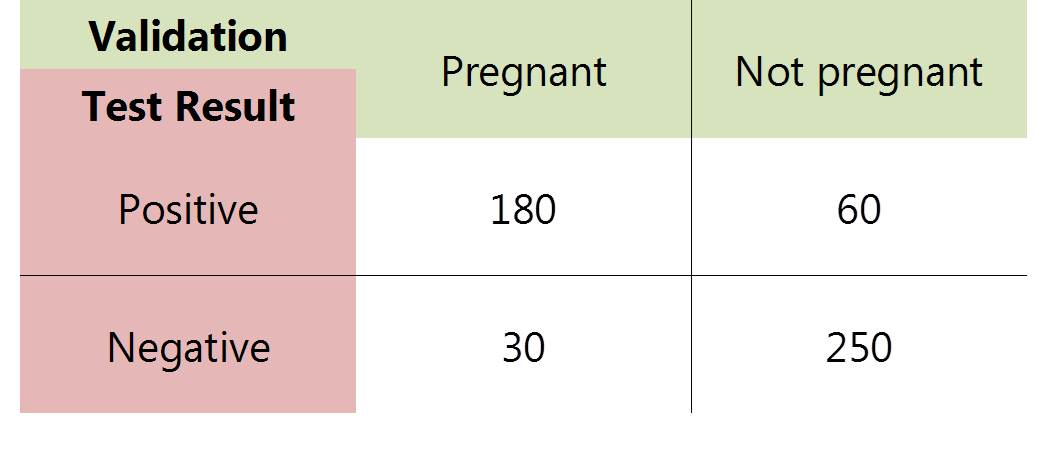WBR0793: Difference between revisions
Jump to navigation
Jump to search
Rim Halaby (talk | contribs) (Created page with "{{WBRQuestion |QuestionAuthor={{Rim}} |ExamType=USMLE Step 1 |MainCategory=Biostatistics/ Epidemiology |SubCategory=Neurology, Reproductive |MainCategory=Biostatistics/ Epidem...") |
m (refreshing WBR questions) |
||
| (8 intermediate revisions by 3 users not shown) | |||
| Line 1: | Line 1: | ||
{{WBRQuestion | {{WBRQuestion | ||
|QuestionAuthor={{ | |QuestionAuthor= {{SSK}} (Reviewed by Serge Korjian) | ||
|ExamType=USMLE Step 1 | |ExamType=USMLE Step 1 | ||
|MainCategory=Biostatistics/ Epidemiology | |MainCategory=Biostatistics/Epidemiology | ||
|SubCategory= | |SubCategory=Reproductive | ||
|MainCategory=Biostatistics/ Epidemiology | |MainCategory=Biostatistics/Epidemiology | ||
|SubCategory= | |SubCategory=Reproductive | ||
|MainCategory=Biostatistics/ Epidemiology | |MainCategory=Biostatistics/Epidemiology | ||
|SubCategory= | |SubCategory=Reproductive | ||
|MainCategory=Biostatistics/ Epidemiology | |MainCategory=Biostatistics/Epidemiology | ||
|MainCategory=Biostatistics/ Epidemiology | |MainCategory=Biostatistics/Epidemiology | ||
|SubCategory= | |MainCategory=Biostatistics/Epidemiology | ||
|MainCategory=Biostatistics/ Epidemiology | |SubCategory=Reproductive | ||
|SubCategory= | |MainCategory=Biostatistics/Epidemiology | ||
|MainCategory=Biostatistics/ Epidemiology | |SubCategory=Reproductive | ||
|SubCategory= | |MainCategory=Biostatistics/Epidemiology | ||
|MainCategory=Biostatistics/ Epidemiology | |SubCategory=Reproductive | ||
|SubCategory= | |MainCategory=Biostatistics/Epidemiology | ||
|MainCategory=Biostatistics/ Epidemiology | |SubCategory=Reproductive | ||
|MainCategory=Biostatistics/ Epidemiology | |MainCategory=Biostatistics/Epidemiology | ||
|SubCategory= | |MainCategory=Biostatistics/Epidemiology | ||
|Approved= | |SubCategory=Reproductive | ||
|Prompt=A new urine pregnancy test is being evaluated before marketing. A trial is conducted to compare the results of this new test to a combination of imaging and blood human chorionic gonadotropin (HCG) levels to validate the pregnancy. A table comparing the results of the study is shown below. What is the probability that a woman is truly pregnant if her urine pregnancy test is positive? | |||
[[Image:WBR0793.jpg|500px]] | |||
|Explanation=The positive predictive value is the probability that a person really has a condition if their test result is positive. The calculation is shown below. | |||
[[Image:Biostat.png|600px]] | |||
|AnswerA=85.71% | |||
|AnswerAExp=This refers to the sensitivity. | |||
|AnswerB=75% | |||
|AnswerBExp=This refers to the positive predictive value. | |||
|AnswerC=89.28% | |||
|AnswerCExp=This refers to the NPV. | |||
|AnswerD=80.64% | |||
|AnswerDExp=This refers to the specificity. | |||
|AnswerE=62% | |||
|AnswerEExp=This does not refer to any particular value. | |||
|EducationalObjectives=The positive predictive value (PPV) is the probability that a person really has a condition if their test result is positive. ''PPV = [True positive/(True positive+False positive)]'' | |||
|References=Chow S, Liu J. Design and Analysis of Clinical Trials, Concepts and Methodologies. John Wiley & Sons; 2013. | |||
|RightAnswer=B | |||
|WBRKeyword=Positive predictive value | |||
|Approved=Yes | |||
}} | }} | ||
Latest revision as of 01:43, 28 October 2020
| Author | [[PageAuthor::Serge Korjian M.D. (Reviewed by Serge Korjian)]] |
|---|---|
| Exam Type | ExamType::USMLE Step 1 |
| Main Category | MainCategory::Biostatistics/Epidemiology |
| Sub Category | SubCategory::Reproductive |
| Prompt | [[Prompt::A new urine pregnancy test is being evaluated before marketing. A trial is conducted to compare the results of this new test to a combination of imaging and blood human chorionic gonadotropin (HCG) levels to validate the pregnancy. A table comparing the results of the study is shown below. What is the probability that a woman is truly pregnant if her urine pregnancy test is positive? |
| Answer A | AnswerA::85.71% |
| Answer A Explanation | AnswerAExp::This refers to the sensitivity. |
| Answer B | AnswerB::75% |
| Answer B Explanation | AnswerBExp::This refers to the positive predictive value. |
| Answer C | AnswerC::89.28% |
| Answer C Explanation | AnswerCExp::This refers to the NPV. |
| Answer D | AnswerD::80.64% |
| Answer D Explanation | AnswerDExp::This refers to the specificity. |
| Answer E | AnswerE::62% |
| Answer E Explanation | AnswerEExp::This does not refer to any particular value. |
| Right Answer | RightAnswer::B |
| Explanation | [[Explanation::The positive predictive value is the probability that a person really has a condition if their test result is positive. The calculation is shown below.
|
| Approved | Approved::Yes |
| Keyword | WBRKeyword::Positive predictive value |
| Linked Question | Linked:: |
| Order in Linked Questions | LinkedOrder:: |

